Kalamazoo College has appointed 10 faculty members as endowed chairs, recognizing their achievements as professors. Endowed chairs are positions funded through the annual earnings from an endowed gift or gifts to the College. The honor reflects the value donors attribute to the excellent teaching and mentorship that occurs at K and how much donors want to see that excellence continue.
The honorees are:
- Francisco Villegas, the Arcus Center for Social Justice Leadership junior chair;
- Leihua Weng, the most senior faculty member in Chinese;
- Cyndy Garcia-Weyandt, an endowed chair in critical ethnic studies;
- Alyssa Maldonado-Estrada, the Marlene Crandall Francis Endowed Chair in the Humanities;
- Kathryn Sederberg, the Lucinda Hinsdale Stone Endowed Chair;
- Regina Stevens-Truss, the Dorothy H. Heyl Senior Endowed Chair in Chemistry;
- Blakely Tresca, the Harriet G. Varney Endowed Chair in Natural Science;
- Amy Elman, the William Weber Endowed Chair in Social Science;
- Autumn Hostetter, the Kurt D. Kaufman Endowed Chair; and
- Richard Koenig, the Genevieve U. Gilmore Endowed Chair in Art.

Francisco Villegas
Villegas, an assistant professor of sociology at K, was a sociology lecturer at the University of Toronto Scarborough from 2014 to 2016 before arriving in Kalamazoo.
Villegas specializes in the topics of immigration, race, citizenship, deportability and illegalization. He has a doctorate in sociology in education from the Ontario Institute for Studies in Education at the University of Toronto, a master’s degree in Mexican American studies from San Jose University, and a bachelor’s degree in psychology and social behavior from the University of California Irvine.
Kalamazoo County launched a community ID program in 2018, allowing residents to obtain it, including those otherwise unable to get a state ID, with Villegas serving as the ID advisory board chair. At this point, more than 3,000 residents have obtained one.
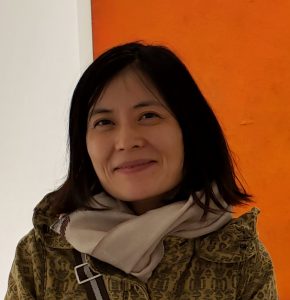
Leihua Weng
Weng, an assistant professor of Chinese language and literature, has taught at K beginning Chinese and advanced Chinese, as well as different content courses in English, such as women in China, urban China and Chinese films.
Weng’s research interest includes (trans-)nationalism and globalization in literature and films, traditions and modernity, and postmodern literary theories. She received her Ph.D. in comparative literature at the University of South Carolina, a Master of Arts at Peking University, and a Bachelor of Arts at Zhejiang University. She taught at Sarah Lawrence College and Pacific Lutheran University before she came to K.
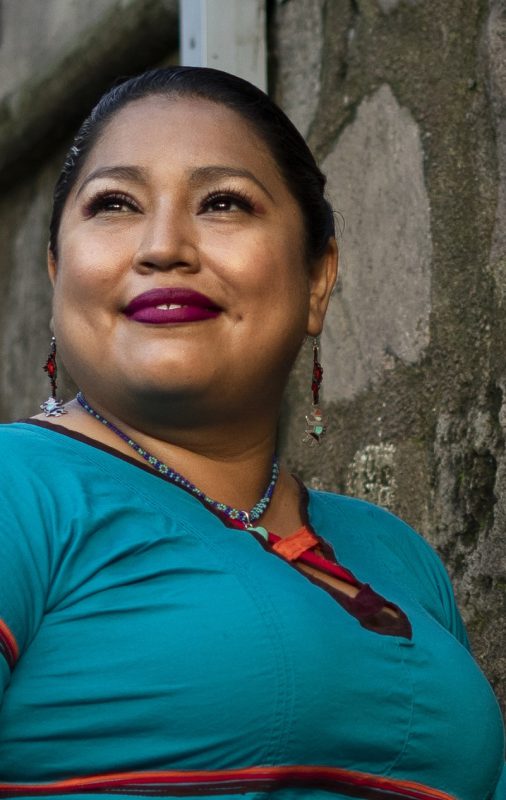
Cyndy Garcia-Weyandt
García-Weyandt, an assistant professor of critical ethnic studies, has taught courses at K in environmental studies such as Body, Land and Labor; and Plant Communication Kinship, as well as courses in critical ethnic studies such as Argument with the Given, a writing seminar exploring dreams, storytelling, poetry, art activism, memoir, and personal narratives as sources of knowledge and social change. She is coordinator and co-founder of Proyecto Taniuki (“Our Language Project”), a community-based project in Zitakua, Mexico.
In the Taniuki, she collaborates with urban indigenous communities in language revitalization efforts. Her research areas include indigenous knowledge systems, land pedagogy, urban indigenous peoples of Mexico, indigenous art and performances, and ontology. García-Weyandt’s ancestral homeland is in San Juan Sayultepec Nochixtlán, Oaxaca, México. She is a poeta, an immigrant, a first-generation college student, and former community college transfer student. She has a Ph.D. and master’s degree in culture and performance, and a bachelor’s degree in anthropology, all from the University of California, Los Angeles.
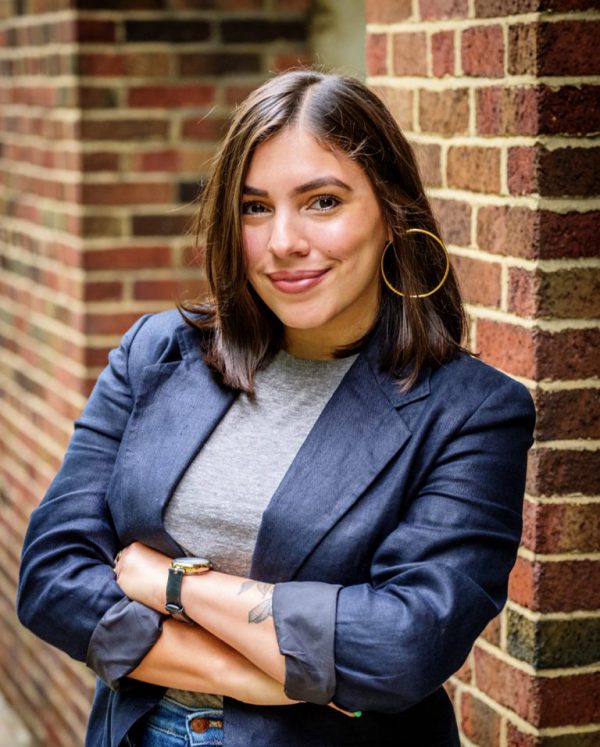
Alyssa Maldonado-Estrada
Maldonado-Estrada, an assistant professor of religion, is the author of Lifeblood of the Parish: Men and Catholic Devotion in Williamsburg, Brooklyn, an ethnography about masculinity and men’s devotional lives in a gentrified neighborhood in New York City. She teaches classes at K on religion and masculinity, urban religion, Catholics in the Americas and the religions of Latin America.
Outside K, Maldonado-Estrada is a co-chair of the Men and Masculinities Unit at the American Academy of Religion and is an editor of Material Religion: The Journal of Art, Objects, and Belief. She also was chosen for the 2020-2022 cohort of Young Scholars in American Religion at Indiana University-Purdue University Indianapolis’ Center for the Study of Religion and American Culture.
Earlier this year, Sacred Writes—a network of religion scholars committed to helping a broad global audience understand the significance of their work—selected Maldonado-Estrada to be one of 24 scholars from around the world receiving a Public Scholarship on Religion for 2021. Maldonado-Estrada received her doctorate in religion from Princeton University and her bachelor’s degree in sociology and religion from Vassar College.
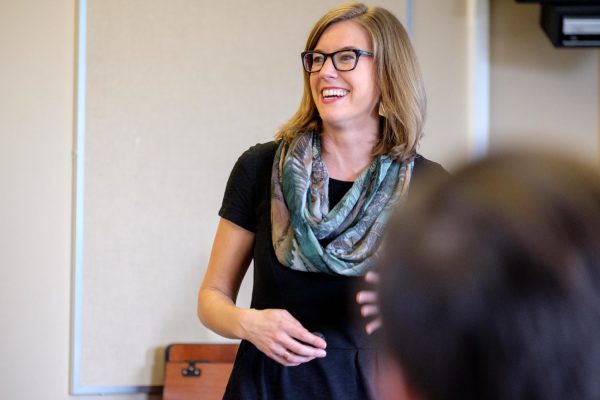
Kathryn Sederberg
Sederberg, a co-chair in the Department of German Studies, will be honored in a virtual ceremony November 20 by the American Association of Teachers of German (AATG) as one of five national recipients of the Goethe‐Institut/AATG Certificate of Merit. The honor recognizes her achievements in furthering the teaching of German in the U.S. through creative activities, innovative curriculum, successful course design and significant contributions to the profession.
Sederberg teaches beginning, intermediate and advanced German as well as Contemporary German Culture and the senior seminars on varying topics. She holds a bachelor’s degree from St. Olaf College and a Ph.D. from the University of Michigan.
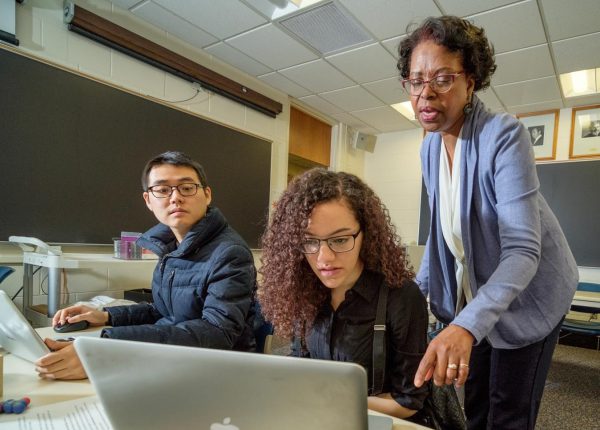
Regina Stevens-Truss
Stevens-Truss, a professor of chemistry and biochemistry, has taught at Kalamazoo College since 2000. She teaches Chemical Reactivity, Biochemistry, Medicinal Chemistry and Infection: Global Health and Social Justice.
Research in her lab focuses testing a variety of compounds (peptides and small molecules) for antimicrobial activity. She is also the current director of the Howard Hughes Medical Institute Inclusive Excellence grant awarded to the College’s science division in 2018.
Stevens-Truss earned a bachelor’s degree from Rutgers University and a Ph.D. in medicinal chemistry from the University of Toledo. She held two fellowships at the University of Michigan between 1993 and 1999, one of which was a lectureship in medicinal chemistry.
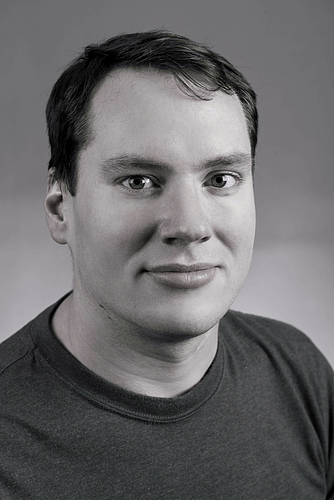
Blakely Tresca
Tresca, an assistant professor of chemistry, has been at K since 2018. He’s a supermolecular chemist with additional research interests in organic chemistry. He co-leads the College’s annual Kalamazoo American Chemical Society networking event, allowing students to discuss chemistry careers with industry professionals.
Tresca holds a bachelor’s degree from Trinity University, and a master’s degree and Ph.D. from the University of Oregon. He was a postdoctoral researcher at Lawrence Berkeley National Lab in the Molecular Foundry.
Amy Elman
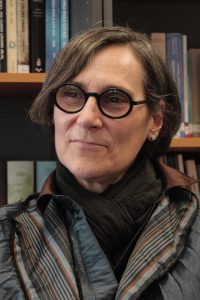
Elman, a professor of political science, has taught a variety of courses within the political science, women’s studies and Jewish studies departments. During her tenure at K, she has also been a visiting professor at Haifa University in Israel, Harvard University, SUNY Potsdam, Middlebury College, Uppsala University in Sweden and New York University.
Elman has received two Fulbright grants, a fellowship from the National Endowment for the Humanities and a grant from the Sassoon International Center for the Study of Anti-Semitism at Hebrew University. She has written three books: The European Union, Antisemitism and the Politics of Denial (2014); Sexual Equality in an Integrated Europe (2007); and Sexual Subordination and State Intervention: Comparing Sweden and the United States (1996). She also edited Sexual Politics and the European Union: The New Feminist Challenge (1996). She has a bachelor’s degree from Brandeis University and a master’s degree and Ph.D. from New York University.
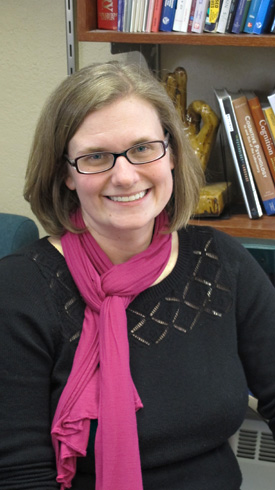
Autumn Hostetter
Hostetter, a professor of psychology, has expertise in cognitive psychology—specifically, the psychology of language and spatial cognition. She has taught classes at K including Cognition, Experimental Research Methods, the Psychology of Language and Mind, and the first year seminar Harry Potter Goes to College.
She maintains an active research lab on campus exploring how we use our bodies to help us think and communicate. She provides many opportunities for Kalamazoo College students to participate in research, both as participants and as research assistants. Some recent publications have appeared in journals such as the Psychonomic Bulletin and Review, Psychological Research, the Quarterly Journal of Experimental Psychology, Teaching of Psychology, and the Journal of Nonverbal Behavior. Many of her publications feature Kalamazoo College students and alumni as co-authors. Hostetter earned a bachelor’s degree from Berry College and a Ph.D. from the University of Wisconsin-Madison.
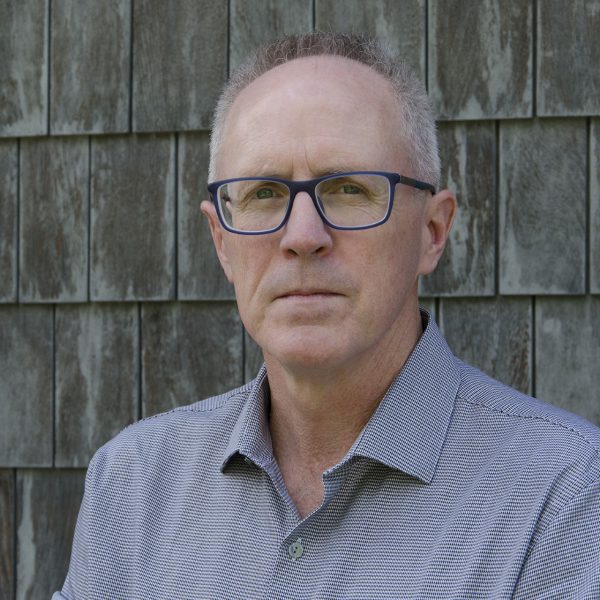
Richard Koenig
Koenig began teaching art and photography courses such as Digital Photography, Analog Photography, Alternative Photographic Processes and several seminars at K in 1998.
His fine art work, Photographic Prevarications, was shown in six one-person exhibits in as many years (from 2007 to 2012). Koenig’s long-term documentary project Contemporary Views Along the First Transcontinental Railroad spawned four articles (between 2014 and 2019). In 2020, Koenig collaborated with four others on a multi-media exhibit, Hoosier Lifelines: Environmental and Social Change Along the Monon, 1847-2020, which was shown this year at the Grunwald Gallery of Art at Indiana University and the Carnegie Center for Art and History in New Albany, Indiana.
Koenig received his Bachelor of Fine Arts from Pratt Institute and his Master of Fine Arts from Indiana University.
